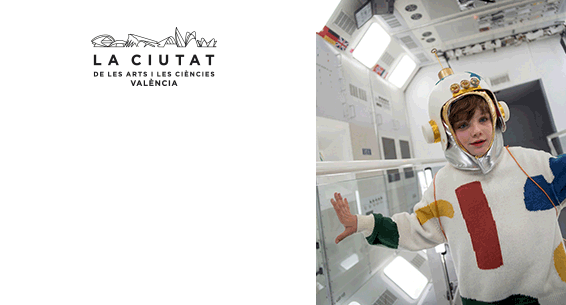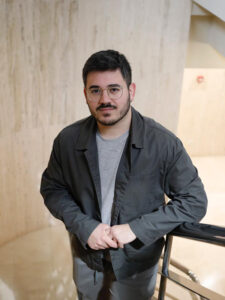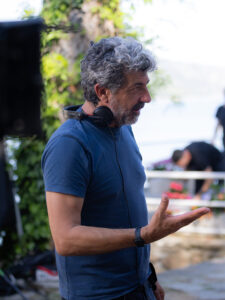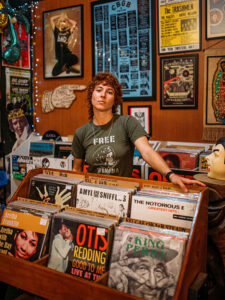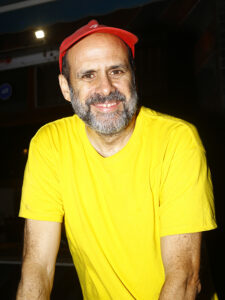
This week, writer Chufo Lloréns gives us an interview (Barcelona, 1931), that just published The fate of heroes (Grijalbo), where it offers us an intense vision of the first decades of the 20th century and the great conflicts that were experienced in Europe and Spain during those years. Llorens studied Law, developing his activity as a businessman in the entertainment world. Always passionate about History, Among his works stand out Catalina, the fugitive of San Benito (2008), I will give you the land (2008), The other leprosy (2010), The saga of the damned (2011), sea of fire (2011) and The Law of the Just (2015). GINÉS J. VERA.
The fate of heroes is a great work halfway between historical chronicle and novelistic fiction that begins in 1894 and ends in the first quarter of the 20th century. How has Europe changed?, for better and for worse, in this century that separates us from the end of the novel and the current era?
Europa, as on other occasions, is trying to organize so that there are no more wars. It already happened after the Napoleonic wars with Teyllerand, by France, and Meternich, by Austria; and at the end of the Great War of fourteen to eighteen, with the League of Nations founded by Woodrow Wilson and which is now the UN, but the lack of coordination, of money and the overabundance of outlets and people who practically do nothing, make UN action very difficult.
Although there is a large cast of real characters in the novel, as Ana Pavlova, King Alfonso XIII or Roland Georges Garros, among others, we found those others, to the fictional ones. I think some of those fictional characters have something in common with you., is that so? Since they are inspired by their family ancestors. What has been easier to fictionalize with the real ones or to fit the fictional ones into reality??
The novel is like a great building that is being built and the difficulties grow as it progresses., on this occasion, By having an extraordinary life, I have been inspired by the events of my ancestors on my mother's side of the family. (my grandmother died in a bombing of L a gros Berta, a cannon that fired a shell every hour installed at 100 km from Paris and that demoralized people who did not know where the next bomb was going to fall), An uncle of mine lost his right leg in the Annual disaster and then fell from the plane twice, once between Gibraltar and Africa, I have the postcard photograph, and I have embedded fictional characters in very unique circumstances that actually occurred in my family., I think the reader will enjoy reading those adventures.
Tell us what the exhaustive historical research work was like to document yourself when weaving historical events into The fate of heroes. For example, The war that pitted Spain and Morocco against each other in the Rif War caught my attention.. Are there still files to be declassified in an office or safe that could provide interesting details about that?
The research work takes a year before you actually start writing the novel.. To find out what happened in the RIF war, I have been informed by many sources that speak of the general Picasso Report in charge of finding those responsible for that disaster., Of whose report of almost two thousand four hundred pages only three hundred remain.. The main culprits were General Berenguer, high commissioner, and General Fernández Silvestre, close friend of Alfonso XIII. The second died (It is said that he shot himself in the head), and Berenguer tried to escape his responsibility until the dictatorship of Primo de Rivera; At that time the king rehabilitated him by placing him as head of his Military House, That was one of the reasons why Alfonso XIII fell..
In one of the passages of the novel, the importance for the prestige of Spanish aviation if a night flight jump were achieved, taking into account the one achieved by France., by Aéropostale, with its night flights, among whose pilots was the famous author of The little Prince. What can you tell us about that high-flying rivalry between Spain and France??
Not exactly with France, All countries tried to gain prestige by breaking aerial records that were followed by the public of the time in the press with great interest.. The Hispano-Suiza engines that Spain served the world were unbeatable, They demonstrated their quality during the European war; Roland Garros, who has given his name to a very important tennis tournament, He was a French pilot and The Red Baron, by Germany, Guynemer, on the French side, They were the favorites of the public and mainly of the ladies. Crossing the English Channel was a record; We invented the La Cierva autogyro and were at the forefront of aviation at the time., The planes occupy a very important part of the plot of the novel.
I would like to ask you about two pioneers who, in my opinion, appear in The fate of heroes. On one side, the Valencian Emilio de la Cuadra Albiol and his pioneering role in the Spanish automotive sector. Of other, the Barcelona film producer and director Ricardo de Baños Martínez and the first pornographic films made in Spain.
The Valencian Emilio de la Cuadra Albiol was a visionary military man who sensed that the world of horse carriages was about to end.. He founded an automotive company that in the fiction of the novel is bought by the protagonist to later associate with Hispano-Suiza and make cars that could compete without shame with the Rolls Royce and that, with one of them, Alfonso Xlll won the Cuesta de las Perdices race. Regarding Ricardo Baños and his brother, They were the pioneers of cinema in Spain and Alfonso XIII was a great fan of porn cinema. Three of his films in the film library of Valencia are preserved. But we are not going to blame Alfonso XIII all his veleities, He was a great athlete, I played Polo, It dribbled in San Sebastián Bay, He was a womanizer and had a group of friends who, According to Queen Mother Doña Cristina, It took him along the bad way; But you have to aim to your credit foundation., Taking advantage of the neutrality of Spain in the war, He saved many lives and redirected many prisoners paying the expenses of his personal peculiar. How the novel is reflected, He was a close king with more shadows than lights.
Finally, I don't want to leave out the two main love stories that make up the plot of the novel.. Tell us about the role of women, by Nachita Antúnez and Lucie Lacroze, in The fate of heroes. What do they have in common with each other besides the prominence in their novel and what will readers of the 21st century see in them with the perspective of this century of difference?, in the family, social and political?
Both Nachita Antúnez and Luzie la Croce actually existed although with other names, They were loved by the same man and suffered the same fate as my maternal grandmother and my grandfather's first wife.. I can't give more clues for not doing spoilers and reveal to the possible future reader a very important part of the novel. I can't forget the century and the moment they lived because you can't judge anyone by extrapolating a story from the time in which it happened. either way, I can say that they were two ahead of their time., a time that broke schemes, changed fashions and began putting women in the place they occupy now; Its history occupies a very important part of The fate of heroes.


